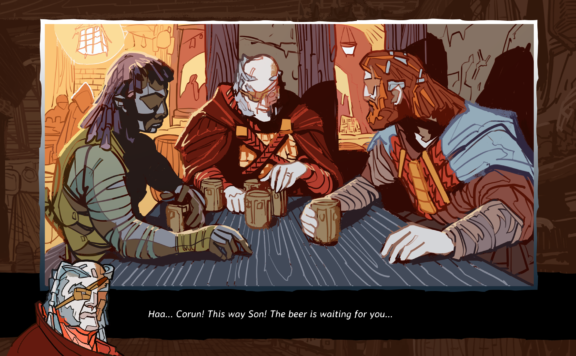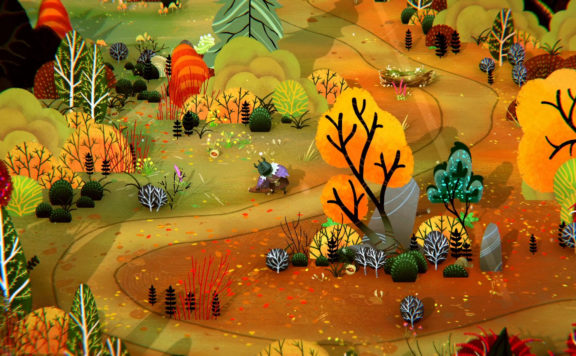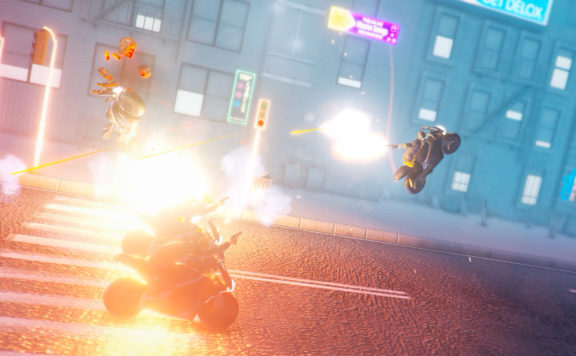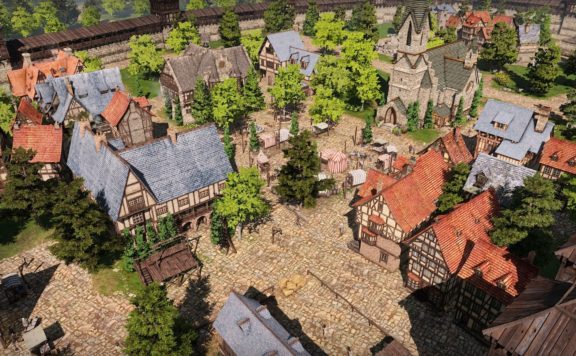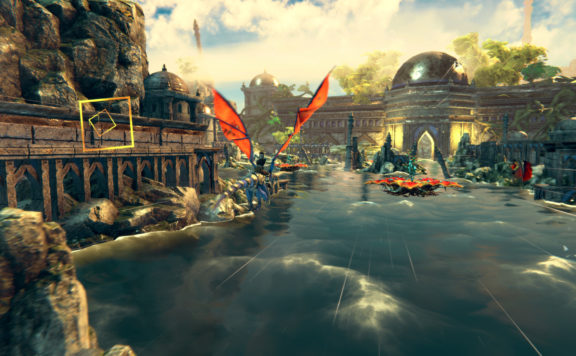Zoria: Age of Shattering is a new project from developer Tiny Trinket Games (Azuran Tales: Trials) and Anshar Publishing. Whereas the likes of Baldur’s Gate 3 focus on a small, tightly-knit band of adventurers setting out on an epic journey, Zoria offers RPG lovers another take. Players are in for a deep, complex quest, featuring neverending trials across this fantasy world, leading a large warband of professional soldiers, sneaky thieves, pious clerics and more.
The enemies are plentiful and empowered by the likes of magic you have never seen before. You have to think strategically, constantly swapping tired or wounded companions in and out, keeping up with your gear and supplies as you take command of an outpost and all the responsibilities that come with it and with the task of winning a war ravaging the continent.
Cooking, crafting, creating potions, setting up camps to preserve the strength of your party for just a few more battles – and then falling back to your base to receive the latest reports, let your companions rest, send up a few more missions and set back out again with a fresh group. This is the song and dance you will have to go through repeatedly to conquer your enemies and save your kingdom. Are you ready?
This is our Zoria: Age of Shattering PC review.
The events of Zoria take place in a fantasy world brimming with magic. Not only will you adventure alongside Light-fueled Сlerics and powerful Wizards, you will also have plenty of run-ins with vile Necromancers and yet more unknown types of magic still found in the ruins that remain from a mysterious ancient race.
Hailing from the kingdom of Elion, you play as an ambitious Captain-turned-Commander fighting against the Izirian invaders. The war is not going well for your side, with Necromancy remaining a constant obstacle and a greatest threat. Instead of facing the enemy head-on, the rulers of the kingdom come up with a different strategy: revive a series of small outposts scattered all around the countryside, and utilize those for needle-strikes against the enemy and for tackling other threats.
However, before you get to your new base, first you have to create your character and escape your very first battle for your life. Zoria lets you customize the Commander’s gender, appearance, name and class.
The classes include a healthy selection of Sentinel, Wizard, Priest, Battle Cleric, Ranger, Kingsman, Thief, Nightwarden, and Lancer, letting players decide for themselves whether they’d like to tank, heal, charge into melee or stay outside and skewer enemies with arrows and spells. Note that classes use different equipment (no melee weapons on Ranger, for example), and some pieces are easier to acquire and get going in the early game compared to others. The same can be said about the whole class progression, too: it feels like Ranger is immediately helpful and dishes out a lot of damage, while Kingsman needs a few levels, skills and some stats from gear before becoming a great tank.
Regardless of what you choose, you will not miss out on others. Following the first map that also serves as the game’s tutorial, you will start to rapidly amass followers coming from all walks of life. These companions come in all shapes, sizes and classes, so you won’t be left without a tank unless you decide to take on that role yourself.
The game features a number of difficulties to ensure that all kinds of players have a great time in Zoria. Note that even on Easy you cannot just brute force through anything and everything, your party will still easily get bogged down with a variety of negative effects like Sunder, Bleed, Curse, and so forth.
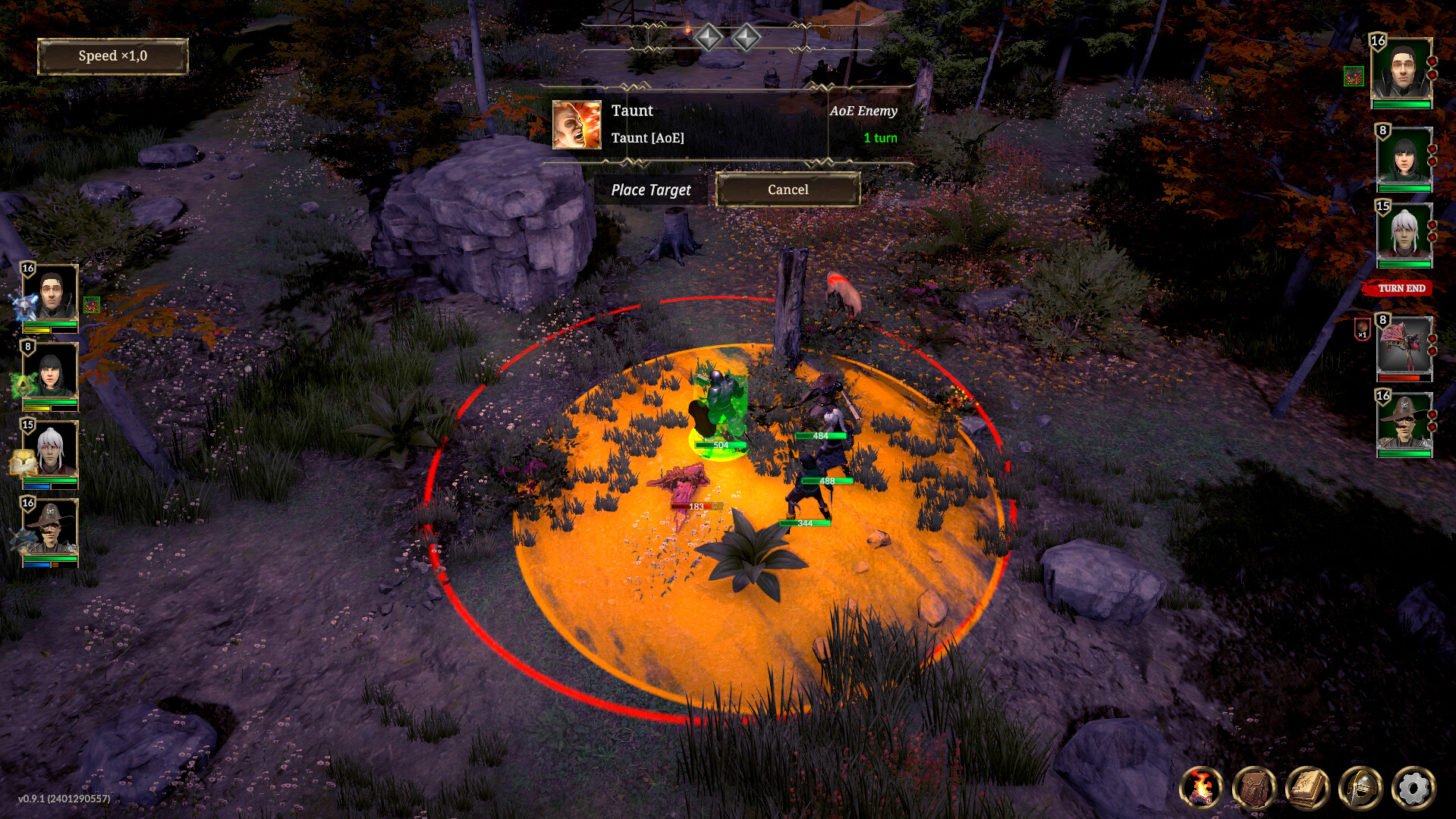
Before venturing further, here’s my main advice: save often, and make sure the game did actually save. During my stay in Zoria I did not run into many bugs, but the few that were present managed to lead to the loss of progress, in total amounting to around 4-5 hours of lost game time. Zoria features only 6 save slots with the first one being used for auto-saves, so you won’t be able to make 90 custom saves to re-experience certain battles or story plots.
A new patch made it so the game creates an auto-save before each combat so that you wouldn’t have to replay too much if your party met its unfortunate demise.
Combat is the bread and butter of the game, and easily half of your entire time will be spent fighting various bad guys. Zoria features some serious diversity when it comes to enemies: from your local wildlife to goblins and Izirian soldiers to some much more impressive golems and dragons. Battles are happening in turn-based mode with the characters acting according to their characteristic of Initiative, which can be further enhanced with gear. You can speed up the combat animations so you never have to disassociate while a million enemy units slowly make their way to your party.
The game places great emphasis on managing resources in combat such as the Action Points, Focus and Mana/Energy. You don’t want to be in a situation where you planned to use a large spell to AoE-heal your party only to find that you do not have enough Action Points.
Having a healthy variety of classes in your active party is the key to success. Not only are you able to mix and match buffing your crew, soaking or healing damage, debuffing enemies and dishing out some punishment, but the game actively encourages you to try out new classes between Fatigue and exploration.
Fatigue is the primary mechanic that will see you swap companions. As your team trudges alongside the commander on this adventure, they will accumulate Fatigue – a debuff which in turn lowers Strength, Initiative and Crit Chance for up to 75%, rendering your assembled crew next to useless. Resting or visiting the Inn at your base allows you to recuperate.
The game encourages you to explore: interacting with the world allows you to collect more loot and recipes, run into side-quests, mini-bosses, and much more. There are also sections of the map that can only be unlocked when you have a companion of a certain class along. For example, Priests can dispel the cursed land that would otherwise block your passage. That way, even when you return to a location you have already visited, there are still exciting new discoveries waiting for you.
Only the companions that are present in your party get the experience from combat and quests. The rest either need to be manually trudged out every now and then not to fall behind too much or sent on missions through your Outpost. More on that below.
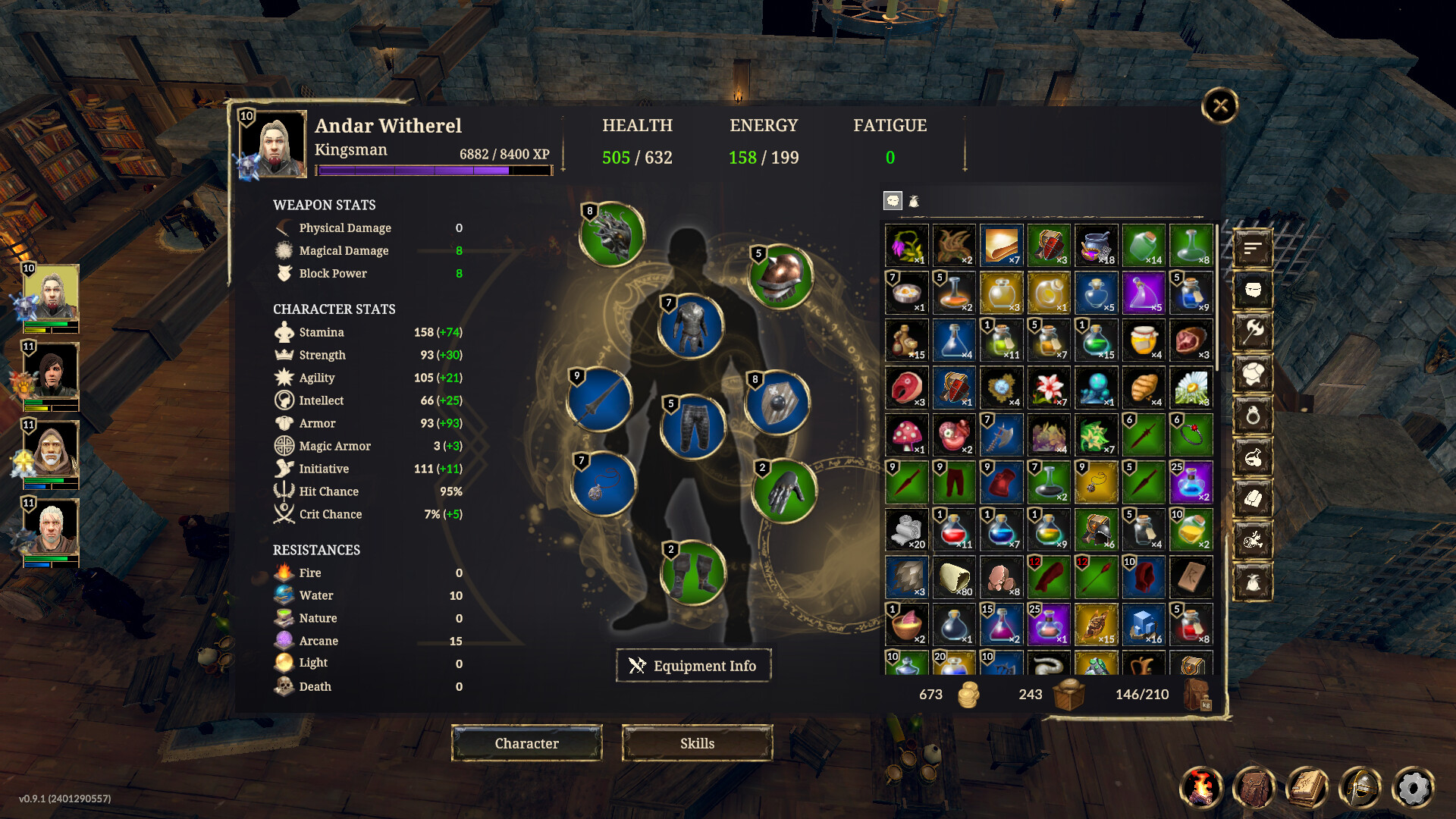
After just a few maps you get your own base – the aforementioned Outpost. Initially, it is quite in a sorry state, but you can put in the time and effort to make it into a magnificent keep. Your Outpost is both your base of operations and home to the companions who are recovering or waiting for your call to action. This is also where you get rid of the mounting Fatigue, replenish your Supplies, craft and repair your gear. When you see them on your adventures, get the recipes for gear & consumables, they will come in handy!
There are a number of buildings to pay attention to: Barracks, Burrow, Lucky Dog Inn, Black Cauldron, Blacksmith and Storage. Each also has a number of upgrades that can be added which would further expand the building’s functionality. Don’t worry, over time you will be able to unlock them all, even if it will not be a quick or easy task.
The keep has the mission table that allows you to send companions on a variety of tasks. It is the prime way to keep your inactive companions relatively leveled up and not falling behind too much while also getting some resources out of it.
Unlocking the Outpost breaks up the quick, battle-to-battle initial pace of the game to add an additional strategy layer to it. Early on, as you go around learning the reins, unlocking buildings and recruiting your very first companions, it might feel slightly overwhelming or even dull as you run between a number of NPCs on the grounds of the keep or right outside of them to fix all the problems of your people. Mines not working, giant spiders and wolves attacking, bandits raiding local farmers, traders not arriving, ale running out (the horror), and many, many more tasks.
Getting through the initial doldrums will see the ratio of battles, exploration and keep management come to a much more bearable and fun balance.
Other activities that you will spend a significant amount of time in include:
- Crafting (weapons, armor & rings), with the final result depending on the materials you use, which can be used only in the Outpost itself or using the Blacksmith Kit encountered in a random village or encampment
- Alchemy – you main source of potions that can heal, take off debuffs, provide a beneficial time-limited bonus, replenish mana and energy. Can be used during camping.
- Cooking – provides you with Supplies (needed for resting and sending out missions), with some dishes also giving your party a buff
Zoria’s strongest point, variety, is also its biggest drawback. You will encounter and recruit dozens of companions, come across hundreds of pieces of randomized gear, and more. And, despite making a valiant effort, the game’s systems and features do not make interacting with this wealth of options easy. There is a way to show only usable gear, but no further useful sorting by level or damage or other stats.
Similarly, when it comes to companion missions, you cannot just tell the game “hide all the companions that do not fit the requirements” (level, fatigue, wounds), having to manually sort through the list and decide on who is able to go and who should stay.

Zoria: Age of Shattering is a product of love and passion from Tiny Trinket Games. The game features a deep narrative, complex tactical combat, base building, and so much more. But the lack of QoL features brings it down: the highs are exhilarating, but the lows can feel a bit too draining.
There are plenty of times when the game will test your mettle with a series of engaging encounters that culminate in an impressive boss battle. However, there are also times when you can’t help but feel like you are slogging through to get to that goodness, making it feel less difficult and more rough around the edges. Optimizing gear selection, trading, base-building, mission UI and more would go to great lengths to minimize that feeling.
At the moment, Zoria has a strong foundation but there is still a lot of room to grow.
- Note: Steam key of Zoria: Age of Shattering was provided for free for the purposes of this review.

